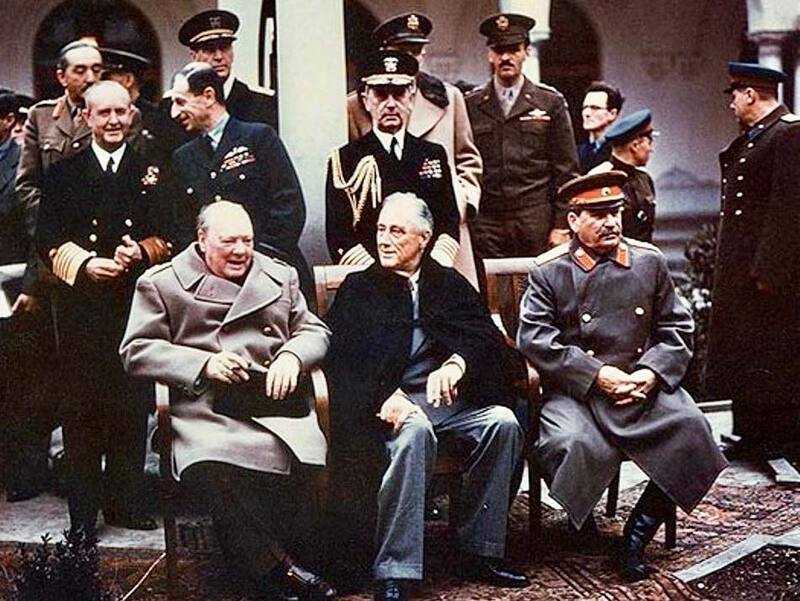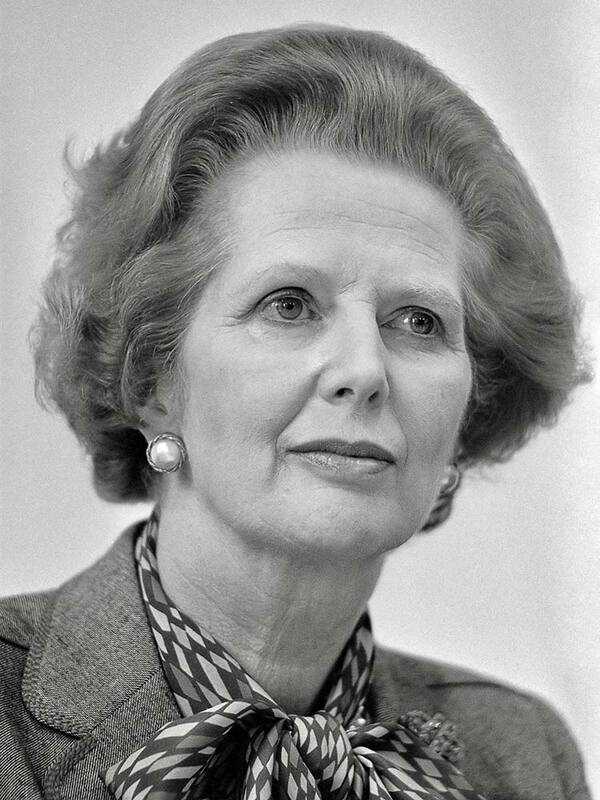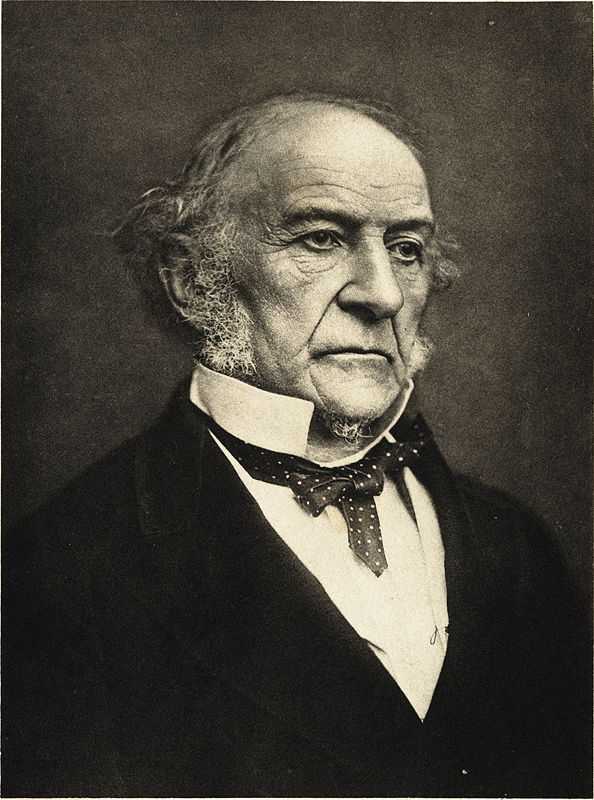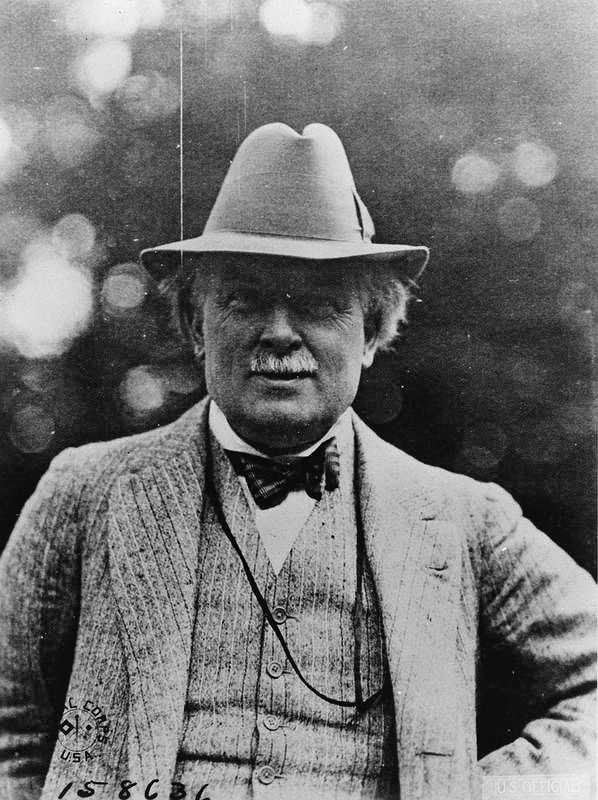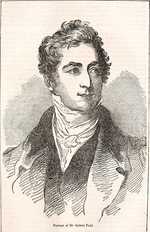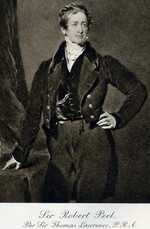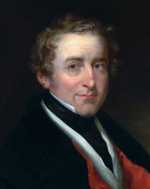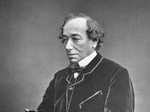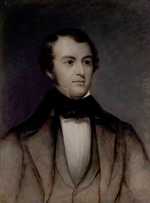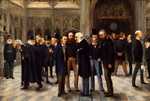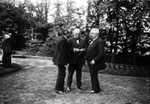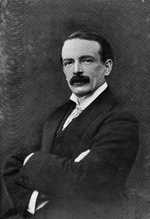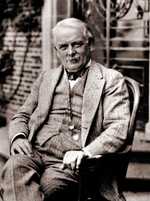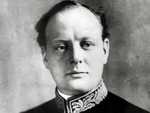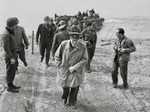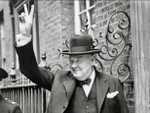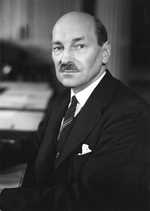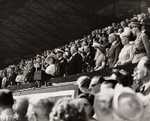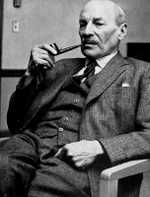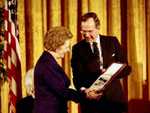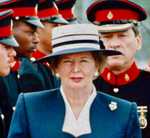1. Charles Grey (1764-1845)
Grey, son of General Charles (1st Earl Grey), a veteran of the Seven Years’ War, and Elizabeth Grey, graduated from Trinity College, Cambridge.
In 1786, Grey, a Whig, was elected as a Member of Parliament (MP), representing Northumberland.
In 1794, he married Mary Ponsonby. Grey was appointed Foreign Secretary in 1806. He supported Catholic emancipation, but King George III was against it and wanted all ministers to sign a pledge to deny concessions to the Catholics. Grey refused and resigned his post.
Grey’s father died in 1807, followed by his uncle in 1808. First, he assumed the title, 2nd Earl Grey, Viscount Howick and then became the Third Baronet Grey of Howick.
From 1830 to 1834, Grey served as Prime Minister (PM). He passed the Reform Act of 1832 which introduced parliamentary reform and made changes to the electoral system of England and Wales.
He also supported The Slavery Abolition Act in 1833 which abolished slavery in most of the British Empire.
Disagreements arose in Grey’s cabinet regarding Ireland and placatory reform (appropriations). Reaching a stalemate, Grey resigned in 1834.
Grey died in 1845. Earl Grey Tea, a blend of tea flavored with bergamot oil, is allegedly named after him.
2. Robert Peel (1788-1850)
Peel, son of Sir Robert, a wealthy textile manufacturer, and Ellen Peel, graduated from Christ Church, Oxford in 1808.
Peel was a Tory. In 1809, he won a seat as a Member of Parliament (MP) for the Irish rotten borough of Cashel, Tipperary.
In 1812, Peel was appointed Chief Secretary for Ireland. He opposed Catholic emancipation and resigned his post as Secretary and left Ireland. In 1820, he married Julia Floyd.
In 1822, as Home Secretary, Peel introduced criminal law and prison reform in the Metropolitan Police Service. The police were nicknamed “bobbies” and “peelers” after Peel.
From 1834 to 1835, Peel was named Prime Minister (MP). In 1834, he introduced the Tamworth Manifesto which outlined a more enlightened conservatism. It is regarded as the foundation document that the modern British Conservative Party is based on.
From 1841 to 1846, Peel served again as PM. The Factory Act which limited the working hours of women and children was passed in 1844. The Whigs and the Radicals helped him repeal the Corn Laws in 1846 which had restricted imports. Bitter dissension arose between him and his party and led to his resignation.
Peel died in 1850. He is regarded as
“the father of modern British policing.”
Learn more on our Robert Peel biography page.
3. Benjamin Disraeli (1804-1881)
Disraeli, son of Isaac, a literary critic and historian, and Maria D’Israeli, initially attended Higham Hall in Walthamstow.
At the age of seventeen, he was apprenticed as a clerk intern in a law firm. Overtime, he realized that he had no interest in becoming a solicitor. In 1822, he changed his name from D’Israeli to Disraeli.
Disraeli hated being a commoner. From 1824 to 1837, he tried stock market speculation and publishing a newspaper to raise his social status. He was unsuccessful and turned to writing fiction to pay off his debts.
Disraeli was a Tory and, in 1837, he was elected as a Member of Parliament (MP) for Maidstone. In 1838, he married Mary Anne Lewis, a wealthy widow twelve years his senior.
MPs were unpaid positions and Disraeli continued to write to cover his expenses. In 1845, he published Sybil, his thirteenth novel. It traced the plight of the working class. He became known as a supporter of the poor and working class.
In 1868, he was appointed Prime Minister (PM), the first of Jewish descent. He experienced some anti-Semitism remarks from his colleagues. To one rude colleague, he responded,
“When the gentleman’s ancestors were herding swine in Scandinavia, mine were receiving the holy tablets from the Deity on Mount Sinai.”
Disraeli’s tenure was short-lived and noncontroversial laws were passed. A general election in 1870 favored the Whigs.
In 1874, Disraeli got another chance as PM (1874-1880). In 1875, Disraeli ushered in The Public Health Act which made slum clearance possible. He also convinced Baron Lionel de Rothchild to loan funds to Britain to finance a major interest in the Suez Canal project.
Queen Victoria elevated him to Earl of Beaconsfield and Viscount Hughenden in 1876.
Disraeli died in 1881. He is remembered as an influential voice in world affairs.
4. William Ewart Gladstone (1809-1898)
Gladstone, son of John, a wealthy slaveowner, and Anne Gladstone, graduated from Christ Church, Oxford in 1831.
At age 22, he won a seat as Member of Parliament (MP) representing Newark.
Gladstone Snr
Gladstone and his father were Tories and he usually agreed with his father on issues. In 1833, he voted against the Factory Acts which regulated the employment and working conditions of women and children and against the abolishment of slavery. In 1834, he helped his father obtain reimbursement for 2,508 slaves he owned.
Gladstone’s last name was Gladstones, but it was changed to Gladstone in 1835. In 1839, he married Catherine Glynne.
Gladstone gained prominence for getting the Railways Act of 1844 passed. As a percentage of gross national product (GNP), railways were considered a shrewd investment.
Rise to power
The Tories lost in 1846. Gladstone was thirty-seven and had begun to think for himself. He distanced himself from the Tories and supported the Whigs. In 1852, he was appointed Chancellor of Exchequer. Rather than borrow funds, he reenacted the income tax and raised taxes.
Four stints in office
Between 1868 and 1894, Gladstone served as Prime Minister (PM) four times.
His first term (1868-1874) focused on improving individual liberty and loosening political restraints, resulting in the Supreme Court of Judicature Act of 1873 which created the modern High Court and Court of Appeals.
In his second term (1880-1885), Gladstone pushed through the Reform Act of 1884 which added millions of new voters (male householders) to the rolls.
In 1885, Gladstone resigned after he was blamed for the massacre of Major-General Charles Gordon and his soldiers in Khartoum. He was accused of sending in relief too late.
Between 1886 and 1894, Gladstone bounced back and assumed the role of PM for the third and fourth time. He introduced the Home Rule and Second Home Rule bills for Ireland. Each time he failed to get the support he needed.
In 1898, Gladstone died. He is revered for his financial finesse and support of Home Rule.
Learn more on our Gladstone biography page.
5. David Lloyd George (1863-1945)
Lloyd George was born David George, son of William, a teacher, and Elizabeth George.
His father died when he was a toddler and his mother moved him to Llanystumdwy in Wales.
Lloyd George was initially educated at Llanystumdwy National School and, later, apprenticed to a firm of solicitors in Porthmadog.
He was admitted to the bar in 1884. As a tribute to his uncle, Richard Lloyd, David George added an additional surname and became David Lloyd George. In 1888, he married Margaret Owen.
Lloyd George was a Liberal and, in 1890, he won a seat as Member of Parliament (MP) for Caernarvon.
From 1908 to 1915, Lloyd George, served as Chancellor of the Exchequer. He initiated the People’s Budget in 1909, which was social insurance financed by land and income taxes.
From 1916 to 1922, Lloyd George was appointed Prime Minister (PM). In 1919, during World War I, Lloyd George was a chief delegate to the Paris Peace Conference which led to the Treaty of Versailles and helped establish the League of Nations.
The Conservatives and Labor Parties were at odds on the settlement of the Irish Free State. Unable to win their support, Lloyd George resigned his position as PM in 1922.
In 1944, Lloyd George became Earl Lloyd George of Dwyfor and Viscount Gwynedd of Dwyfor,
Lloyd George died in 1945 before taking his seat in the House of Lords. He has been praised for guiding Britain through World War I.
Learn more on our David Lloyd George biography page.
6. Winston Churchill (1874-1965)
Winston Leonard Spencer Churchill, son of Lord Randolph, a Member of Parliament (MP) for Woodstock, and Jennie Churchill, studied at the Royal Military Academy, Sandhurst.
In 1895, he was commissioned as a second lieutenant in the 4th Queen’s Own Hussars Regiment of the British Army based at Aldershot. He joined expeditions to India.
In 1898, Churchill worked as a journalist with The Morning Post. While covering the Second Boers War, he was captured and placed in a Boer prisoner of war (POW) camp in Pretoria. He escaped and made his way to safety in Portuguese East Africa.
Churchill, a Conservative, secured a seat as a MP, representing Oldham in 1900. He disagreed with the Conservatives on the Aliens Bill which was designed to curtail Jewish migration into Britain and left the Conservative Party and joined the Liberal Party.
During that period, 1904 to 1924, he held numerous positions, including President of the Board of Trade. He also married Clementine Hozier in 1908.
In 1924, Churchill returned to the Conservative Party. He was appointed Chancellor of the Exchequer. Five years later, the Conservatives lost the election. They regained power shortly before Britain declared war on Germany in 1939.
During the late 1930s, Churchill was a vocal and ultimately correct critic of Chamberlain's policy of appeasing Hilter.
In 1940, Churchill was appointed Prime Minister (PM). In 1941, the Japanese entered the war and attacked Pearl Harbour (US). President Theodore Roosevelt, a Democrat, officially entered World War II. Churchill and Roosevelt worked jointly which resulted in the defeat of the Germans and Japanese in 1944.
Over this period, Churchill galvanised the country with his oratory, with speeches containing the lines:
"We will fight them on the beaches ...."
"Never in the field of conflict was so much owed by so many to so few."
"Russia is a riddle, wrapped in a mystery, inside an enigma."
In 1951, Churchill was named PM for the second time. He continued to work on foreign relations matters with the United States, but, allegedly, he was not compatible with the Republicans.
Churchill died in 1965. He is revered as a brilliant orator and military strategist.
Learn more on our Winston Churchill biography page.
7. Clement Richard Attlee (1883-1967)
Attlee, son of Henry, a wealthy London solicitor, and Ellen Attlee, graduated from the University College, Oxford in 1904 and became a barrister in 1906.
In that same year, he joined the Independent Labor Party.
In 1919, Attlee became Mayor of the Metropolitan Borough of Stepney and, in 1922, he won a seat as a Member of Parliament (MP) for Limehouse in the East End of London. In that same year, he served as Under-Secretary of State for War and married Violet Millar.
Attlee was appointed Deputy Prime Minister (DPM) in 1942. This was unusual in two respects: there had been no DPM before; and Attlee came from a different political party to the Prime Minister (PM), Winston Churchill.
In 1945, Attlee defeated Churchill in a general election and became PM. His experiences had convinced him that charity was insufficient and that the government should help people.
In 1946, eight major pieces of legislation were placed on the statute book. Of note was the National Health Service Act (NHS).
Attlee was elevated to Earl Attlee and Viscount Prestwood in 1950. In 1967, Attlee died. He is remembered as the creator of the modern welfare state.
8. James Harold Wilson (1916-1995)
Wilson, son of James, an industrial chemist, and Ethel Wilson, graduated from Jesus College, Oxford in 1937. He married Mary Baldwin in 1940.
Wilson was a member of the Labor Party and was elected as a Member of Parliament (PM) for Ormskirk and assigned the position of Secretary for Overseas Trade in 1945.
In 1947, Wilson was instrumental in passing the Statistics of Trade Act, which is still the authority governing most economic statistics.
In 1964 Wilson was appointed Prime Minister (PM). Most notable of his social reform programs was education. He expanded comprehensive education and created the Open University.
In 1966, he was appointed the first Chancellor of the newly created University of Bradford. He held this position until 1985. He also supported the decriminalization of male homosexuality.
In 1974, Wilson was appointed PM for the second time. The key issue during this short tenure (1974-1976) was the referendum on British membership in the European Economic Community (ECC).
Wilson abruptly resigned as PM in 1976, following a global recession. He was given life peerage as Baron Wilson of Rievaulx. Wilson died in 1995. Historians praise him for not getting Britain involved in the Vietnam War.
9. Margaret Hilda Thatcher (1925-2013)
Thatcher, daughter of Alfred, a small business owner, and Beatrice, graduated from Somerville College, Oxford in 1947 with a Bachelor of Science in chemistry.
She worked, briefly, in private industry. She married Dennis Thatcher in 1951 and became a barrister in 1953, specializing in tax law.
Thatcher, a Conservative, won a seat as Member of Parliament (MP) for Finchley in 1959.
From 1970 to 1974, Thatcher served as Secretary of State for Education and Science. In 1979, she was appointed Prime Minister (PM).
Thatcher was the first female PM of Great Britain and Northern Ireland. Among her challenges during her first term was the fact that the government was nearly bankrupt.
To help fill the government’s coffers, Thatcher lowered direct taxes on income and increased indirect taxes.
Also, in 1982, Argentina attacked the Falkland Islands. Thatcher sent British soldiers to the Falkland Islands and Argentina surrendered. Diplomatic relations were restored in 1989.
During Thatcher’s second term (1983-1987) as PM, there was an assassination attempt against her by the Irish Republic Army (IRA). She took it in stride and continued her work.
During her third term as PM in 1987, Thatcher supported an active climate protection policy and passed the Environmental Protection Act in 1990. The downfall for her party and ultimately her resignation in 1990 occurred when she supported a Community Charge, which was viewed as a “poll tax”.
Thatcher served longer than any other PM of the twentieth century. She received a life peerage as Baroness Thatcher of Kesteven.
Thatcher died in 2013. She is remembered as one who raised the British economy from statism to liberalism.
10. Anthony Charles Lynton Blair (1953 - )
Blair, son of Leo, a barrister, and Hazel Blair, graduated from St. John’s College, Oxford and Lincoln’s Inn. In 1975, he became a barrister, specializing in employment and commercial law.
In 1980, he married Cherie Booth.
Blair, a Labor Party member, won an election as a Member of Parliament (MP) for Sedgefield in 1983. Later, he was appointed Spokesman on the Shadow Trade and Industry Team and Shadow Home Secretary in 1987.
“New Labor” was Blair’s slogan which resonated with the public, enabling The Labor Party to win in 1997, ending eighteen years of Conservative Party rule. He became Prime Minister (MP) and, in 1998, he helped negotiate the Good Friday Agreement which ended most of the violence in Northern Ireland.
Among Blair’s social policies were the National Minimum Wage Act and the Human Rights Act in 1998.
During his first six years in office, Blair ordered British troops into combat five times to fight wars in Iraq, Kosovo, Sierra Leone, and Afghanistan. He supported Republican President George W. Bush’s (US) foreign policies regarding Iraq and Afghanistan, particularly after the 2001 bombing in New York City (US).
However, as the British casualties mounted and London was hit with a terrorist attack on July 7, 2005, his popularity dropped precipitously. Blair resigned in 2007.
On balance, Blair is remembered as someone whose reforms and policies reshaped Britain.
He is currently executive chairman of the Tony Blair Institute for Global Change.
